From the FSJ Archive—Human Rights in Foreign Policy
Civil (and Human) Rights
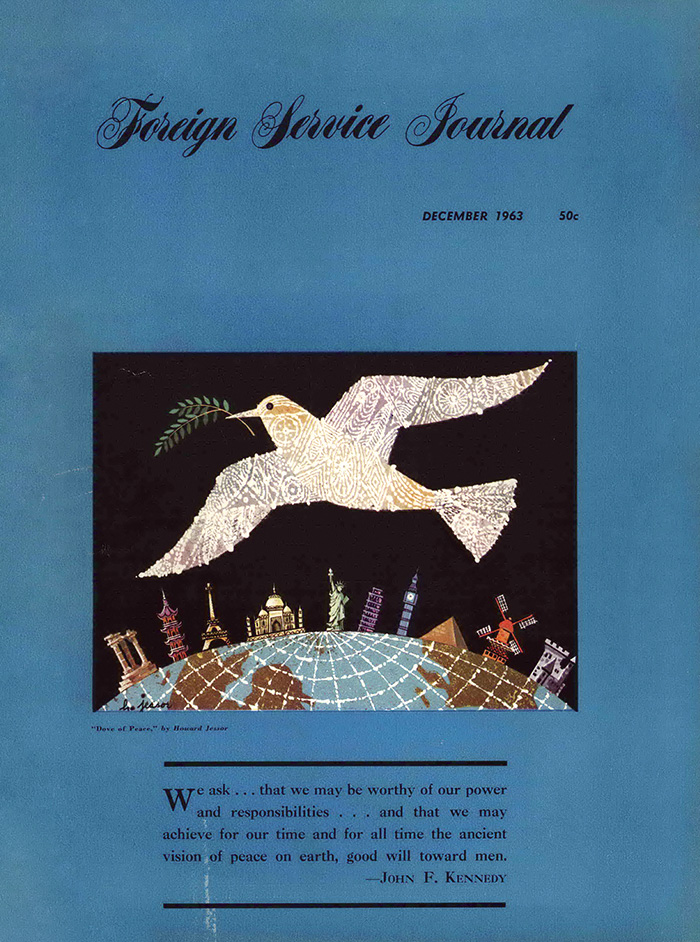
FSJ Editorial, December 1963
There is no doubt that discrimination in one form or another against racial and religious minorities exists in virtually every country in the world. It is precisely because the United States is trying to make meaningful not only its pledges to the Charter, but also its declarations of principle in the Constitution and in the Declaration of Independence, that this country occupies the spotlight on this issue.
Morality and Human Rights in Foreign Policy
by John L. Washburn, May 1977
The Carter administration has just taken office, and is now looking to make human rights a central concern in its conduct of foreign policy.
Human Rights and International Order
by James Nathan, February 1978
A policy of human rights, like a policy which seeks to delimit “aggression,” knows no natural limit. But if a policy geared to the protection of human rights is to be selective, how is the selection to be made?
Human Rights and American Policy in Africa
by Armistead Lee, October 1978
Whether considering quiet diplomacy or public confrontation, linking human rights to other conditions in Africa has proven to be a delicate challenge.
Why Bother about Human Rights?
by Sandy Vogelgesang, May 1980
Some have belittled campaigns to emphasize human rights as “moralistic crusades,” yet there are many legal, cultural and pragmatic incentives for taking a strong stand for human rights.
Rights and Reagan
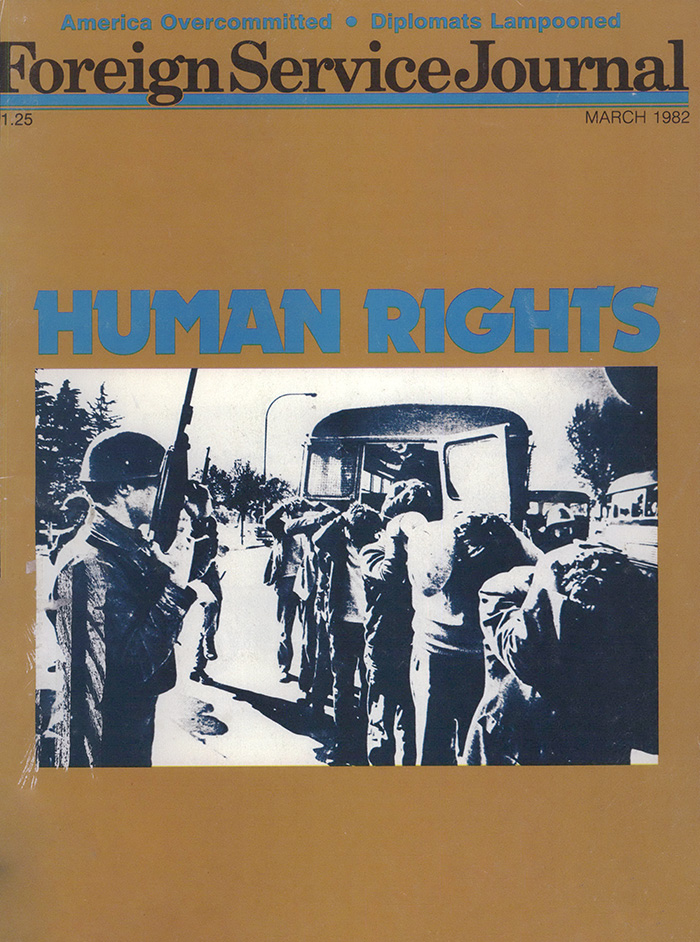
by Jefferson Morley, March 1982
The Reagan administration needed to do more than fill a position that had been vacant for nine months. The disdain for human rights that the administration had brought to Washington in January failed, if not as policy, then as politics.
Diplomacy’s Orphans: New Issues in Human Rights
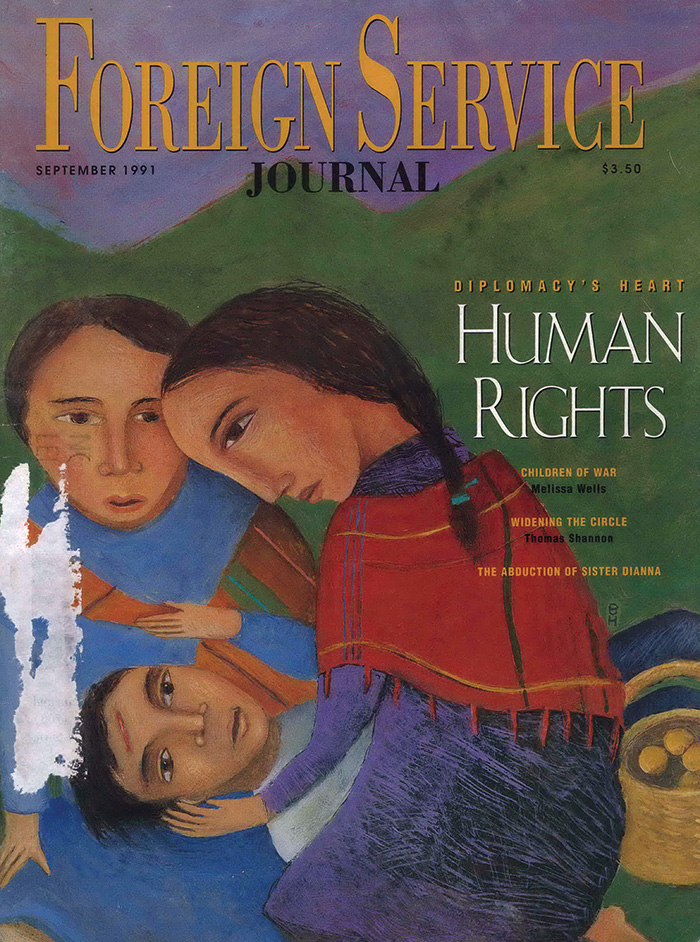
by Tom Shannon, September 1991
We are living through a period of quiet but profound change in the international human rights agenda, which will post new diplomatic challenges to the United States. While the principal human rights issue of the 1980s—political repression—will remain our primary human rights concern through this decade, several new issues have emerged that do not easily fit into our traditional understanding of human rights.
Improving State’s Human Rights Reports
by Julien LeBourgeois, September 1991
State’s annual human rights reports have been susceptible over time to faddish public and congressional preoccupations, and to changing Executive Branch criteria.
Ideological Warrior: An Interview with Michael Novak
by John Harter, September 1991
Michael Novak, who served as the U.S. Representative to the United Nations Human Rights Commission, discusses what it’s like to defend human rights at the U.N.
The Feminization of Human Rights
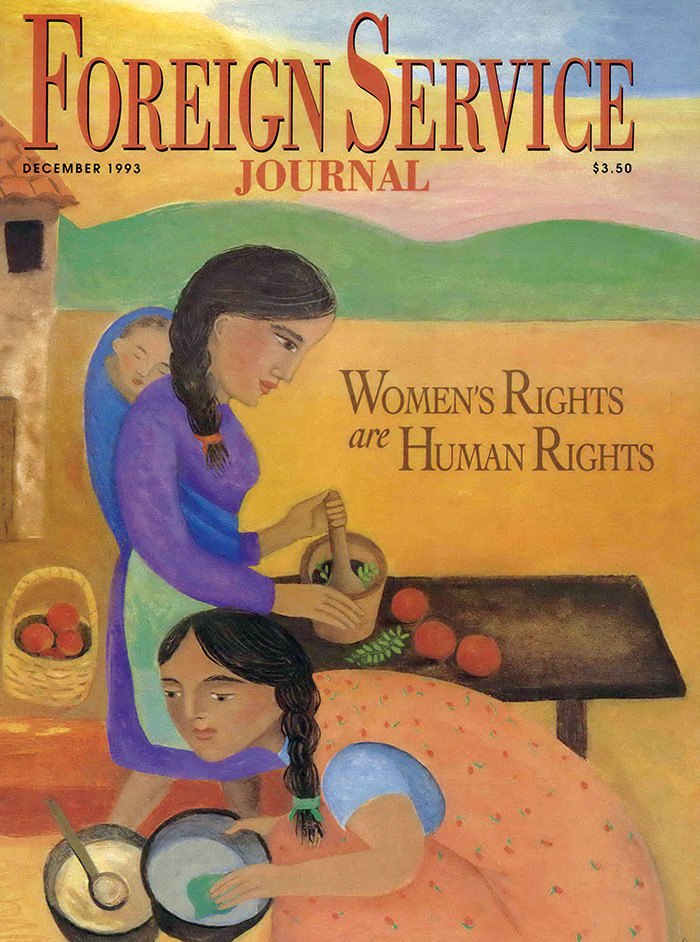
by Arvonne Fraser, December 1993
An acknowledgement that women, too, have human rights has been long in coming. But the establishment of separate U.N. commissions on human rights and on the status of women confirmed the distinction between human rights and the equal rights of women.
The Saga of Harry Wu
by Robert Senser, December 1995
When Harry Wu decided to return to China to continue investigating human rights abuses, little did he know his arrest would turn into one of the great human rights dramas on the world stage.
Human Rights Report: Luxury or Necessity?
by David Jones, May 1998
Is the Human Rights Report worth the trouble? It portrays the U.S. as Uncle Scold or Global Nanny. It deserves grudging respect for its longevity and for its role in international discussion of human rights, but it has become an increasingly heavy burden for the State Department.
American Diplomacy and the Death Penalty
by Harold Hongju Koh and Thomas R. Pickering, October 2003
For a country that aspires to be a world leader in human rights, the death penalty has become our Achilles’ heel.
After Abu Ghraib: The U.S. Human Rights Agenda
by George Gedda, December 2004
There is no question that the prisoner abuse scandal hurt America’s reputation. But the Bush administration has pushed forward with efforts to expand the U.S. human rights agenda, and enjoyed some successes.
Reasserting U.S. Leadership in Human Rights
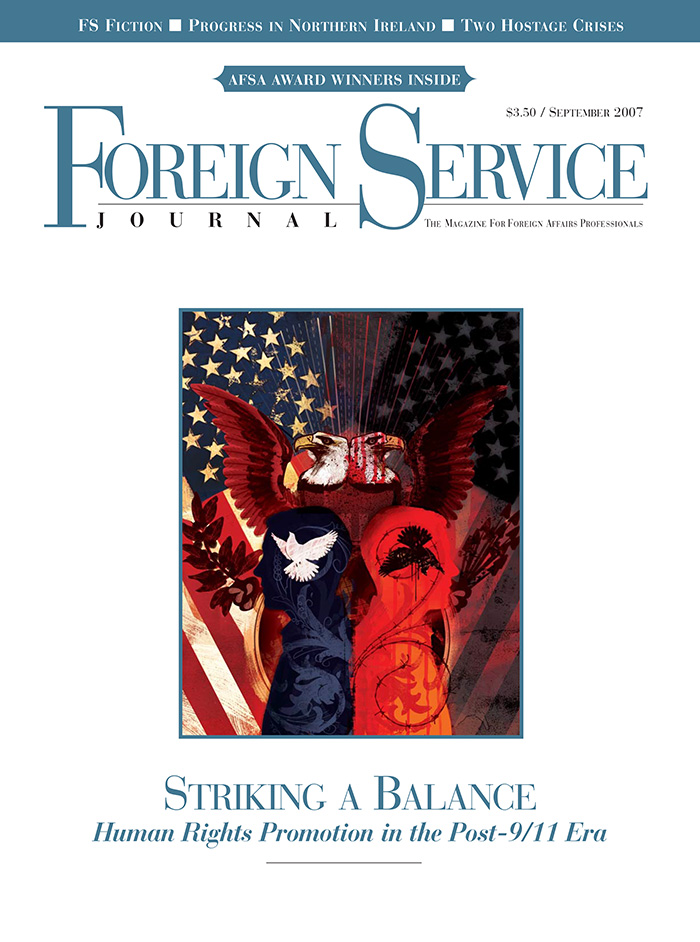
by Edmund McWilliams, September 2007
The U.S. reputation for integrity, just behavior and leadership in upholding global standards is at a low point. How can it be restored?
Honoring Patt Derian
by Diana Page, January 2010
Nearly three decades after leaving office, the first assistant secretary for human rights receives a rare tribute.
Human Rights, China and 21st-Century Diplomacy
by Michael Posner, September 2012
Developments in China offer new opportunities to reframe the approach to bilateral discussions of human rights.
A Human Rights Dialogue with Congress
by Robert McMahon, June 2013
Policymaking on human rights issues is sometimes hindered by poor relations between State and Capitol Hill. Fortunately, there are ways to improve cooperation.
Human Rights for LGBT Persons: Aiming for Sustainable Progress
Q&A w/ Special Envoy Randy Berry, June 2015
Protecting the existence and rights of the LGBT community has become a core issue in the U.S. human rights mission worldwide.
How to Strengthen Human Rights Diplomacy
by Samuel C. Downing, September 2019
Though for the past several decades there has been a clear bipartisan consensus for promoting human rights and democracy abroad, and many members of the Foreign Service are called to diplomatic work because of their interest in human rights, the management structure for human rights work at the State Department does not reflect this mandate and tends to disempower those who pursue it.



